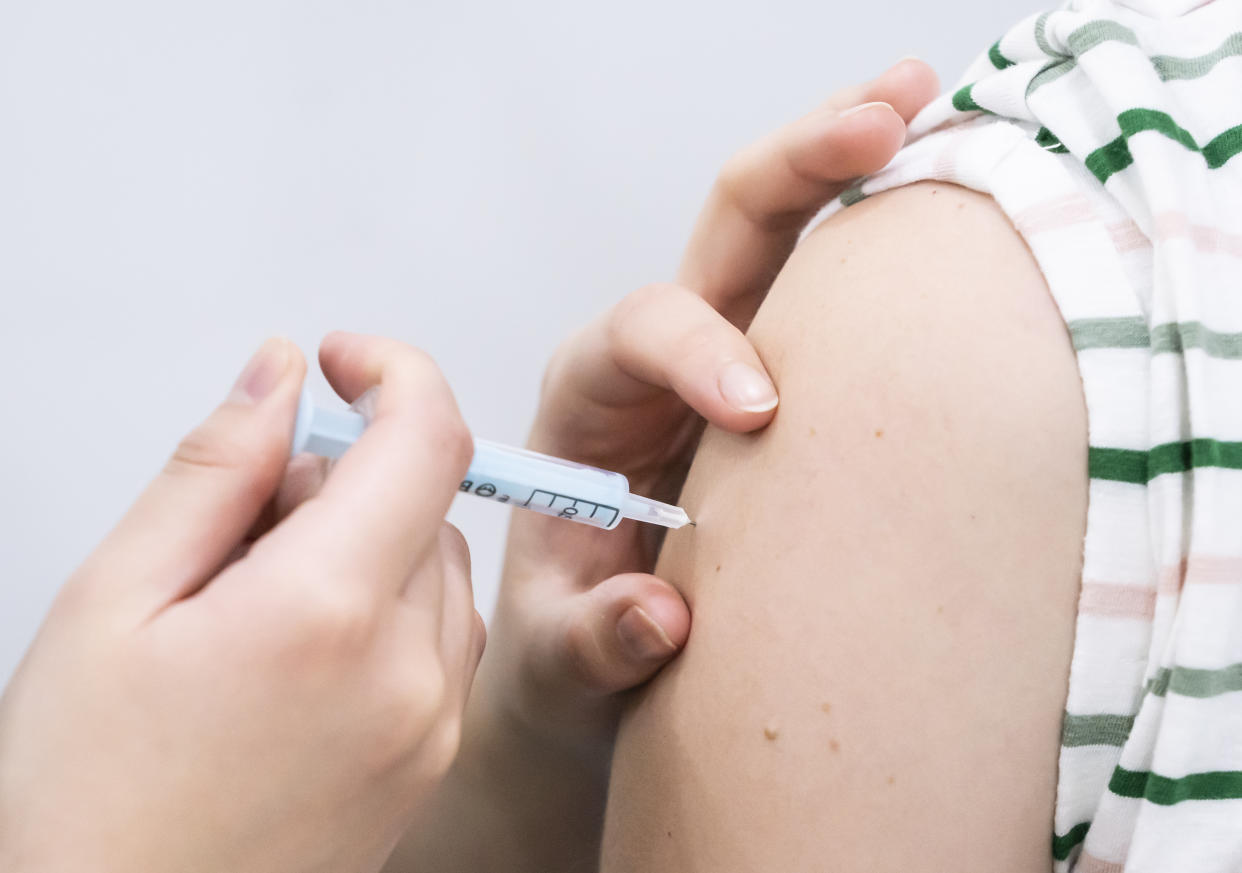Record numbers of young children admitted to hospital with Covid

Record numbers of young children are being admitted to hospital with coronavirus in England, figures have revealed.
It comes amid warnings that the transmission of the Omicron variant is “eye-wateringly high" and scientists and politicians comb the data to understand the full extent of its impact.
The latest government data showed there were 196 children aged 0-5 admitted to hospital, according to the rolling weekly average up to 18 December.
A record of 38 children in that age group were admitted to hospitals in England on 15 December alone, the figures show.
The rolling weekly average for 0-5s has risen steadily in December, from a figure of 100 on 29 November.
There is no suggestion that the Omicron variant of coronavirus is more severe for young children.
It is thought the rise in child admissions is, in part, a result of an increase in Covid cases for that age group overall.
According to the government data, there were 312.5 cases per 100,000 in the 0-4 age group in the rolling weekly average up to 14 December. On 30 November, the rate was 260.1 per 100,000. At the beginning of November, it was at 162.2 per 100,000.
According to the latest government data, 919 people were admitted to hospitals in the UK on 14 December.
In London, 210 people were admitted to hospital on 18 December, the government said. As of 20 December, there were 1,819 Covid patients in London hospitals.
Sir David Spiegelhalter, a professor of mathematics at the University of Cambridge, said there was still a lot of unknowns surrounding the Omicron variant, meaning it is difficult to predict how high hospitalisation numbers could go.
He told Channel 4 News that coronavirus was rife in London and that many people had it without knowing it.
Omicron took over as London’s dominant variant last week, and the 15 areas of the UK with the worst Covid outbreaks are all in the capital.

The Royal College of Nursing said on Tuesday that on 12 December, staff absences in London had risen by 31% from the start of the month from 1,174 to 1,540 as Covid cases surged.
Patricia Marquis, England director at the RCN, said: “The next few weeks paint a very bleak picture for nursing staff who are already physically and emotionally exhausted by what has happened throughout the pandemic.
“In many places they are already starting to go off sick themselves with Covid, but also mental and physical exhaustion.
“Before the pandemic, there weren’t enough staff to deliver what was needed. Staff are now looking forward thinking ‘Oh my goodness, what is coming?’”
On Monday, the HSJ medical journal reported that hospitals and ambulance services in London are “likely to be overwhelmed” in the next two to three weeks.
The HSJ reported that a leaked NHS England London document, dated 20 December, reads: “NHS services in London are again facing significant operational pressure as a result of the current surge in Covid cases from the new variant of concern, Omicron.
“Through recent modelling, it is predicted that the London Ambulance Service, Emergency Departments and the General and Acute bed base are likely to become overwhelmed due to rising Covid demand in the next 2-3 weeks.”
On Tuesday, Sir Jeremy Farrar, director of the global charitable foundation Wellcome, said he believed “we’re in the most difficult, most uncertain time, perhaps of the whole pandemic, certainly since March of 2020”.
He added: "Omicron is spreading unbelievably fast. It is a phenomenal variant, transmission is eye-wateringly high, but there is great uncertainty.
“More data will be available today and tomorrow and I would act on those if transmission is rising still and if hospitalisations are going up across the country.”
Elsewhere, Paul Hunter, Professor in Medicine at the University of East Anglia (UEA), said the previous rapid increase in cases appears to be slowing and, if that is true, there is no need for a lockdown.
Prof Hunter said if Omicron cases continue to double every two days “then it would not be long before we got to seriously high numbers that would eventually put the NHS under a dreadful strain and under some predictions could ultimately overwhelm the NHS”.
Under some modelling scenarios, high hospital admissions are “pretty much locked in” and “a lockdown after Christmas would probably be too late”, he said, but at the lower end of the predictions, hospital admissions would not overwhelm the NHS.
On Monday, prime minister Boris Johnson resisted calls for pre-Christmas measures, although he didn’t rule out restrictions in the coming days as ministers study the Covid case data on an hourly basis.
Watch: Boris Johnson 'reserves the possibility' of further Covid restrictions


